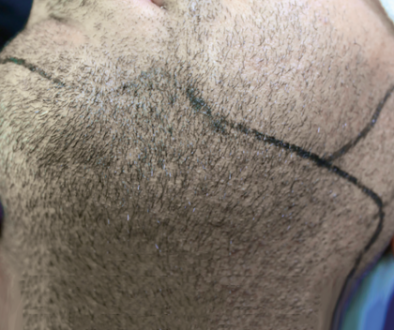I’m Experiencing Extreme Side Effects on Propecia: What Are My Options?
I’ve been taking finasteride (1mg) for more than two years. I started on a regimen at the age of 20. I started taking it and, within two weeks, had absolutely no erections. I continued taking it for three months hoping the symptoms would go away. The symptoms never went away and I stopped taking finasteride. After a 2 week sabbatical, the erections came back. After a month-long abstinence, I started taking it again and the erections subsequently diminished. I continued taking finasteride for 14 months and could never get an erection. I then took another sabbatical. After 6 weeks, the erections came back. According to my dermatologist, I’ve receded from a Norwood 2, measured at the age of 20 to a Norwood 4, measured last month (2 months before my 23rd birthday). However, she noted that I have a very thick donor area.
Should I continue taking finasteride in light of my inability to maintain erections when I have the medication in my system and in light of the fact that it hasn’t reversed or stopped my hair loss? If I decide to get a hair transplant, would that mean I would have to continue a life-long therapy of finasteride? That would obviously mean a lifetime of no erections.
I hear a lot about not getting a hair transplant at a young age because your hair could potentially still recede and then you’d be chasing your hair loss–given you have enough donor hair. With that said, I also hear a lot about the possibility of cloning hair follicles and how it could be a viable option in the near future. Furthermore, a recent study came out about the possibility of awaking progenitor cells through the use of already present stem cells as the catalyst. My question is this: Although nothing is for certain, do you think it would be worthwhile for me to engage in a high density transplant operation which would result in a densely packed packed hairline and leave me with very limited donor hair? My only reason for doing so would be the possibility that should my hair continue to recede, I could remediate the progression of the hair loss through new potential advances in hair restoration.
 Most hair restoration physicians highly recommend using Propecia (finasteride) combined with Rogaine (minoxidil) indefinitely after hair transplant surgery. This gives the patient the best opportunity to maintain the appearance of fullness over the long-term. However, if you discuss your desire to forgo finasteride, your hair transplant physician may recommend a more conservative approach conserving more follicular unit grafts to address further balding in the future.
Most hair restoration physicians highly recommend using Propecia (finasteride) combined with Rogaine (minoxidil) indefinitely after hair transplant surgery. This gives the patient the best opportunity to maintain the appearance of fullness over the long-term. However, if you discuss your desire to forgo finasteride, your hair transplant physician may recommend a more conservative approach conserving more follicular unit grafts to address further balding in the future.
Personally, if finasteride caused me to have no erections, I believe I would not take it. No matter how much I prefer having hair, the main reason I want hair is to be more confident and attractive to the opposite sex. If I were not able to act upon that desire then having hair for me is just not that important.
This is an exciting time for medical research. It seems that every week a new and interesting theory or potential hair loss treatment is announced. However, those of us who have already been dealing with androgenic alopecia for decades have seen many “10 years till the hair loss cure” predictions come and go. While I generally don’t consider myself an optimist, I do believe that young men your age can expect more effective hair loss treatments in your lifetime but I don’t think that reputable and ethical hair transplant physicians will plan surgeries that may depend upon as yet unavailable treatments to maintain their appearance in the future.
—-
David – aka TakingThePlunge
Assistant Publisher and Forum Co-Moderator for the Hair Transplant Network, the Hair Loss Learning Center, the Hair Loss Q&A Blog, and the Hair Restoration Forum
Get Proven Hair Loss Treatments at the Best Prices by visiting our new Online Hair Loss Product Store
Technorati Tags: finasteride, hair loss, hair transplant, hair restoration, Propecia, Rogaine, minoxidil, follicular unit grafts, balding, hair loss treatment, androgenic alopecia, hair loss cure



